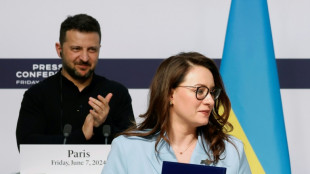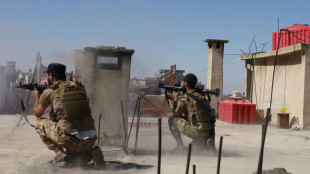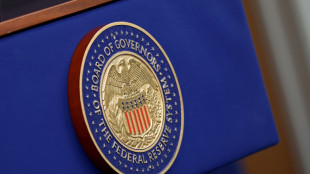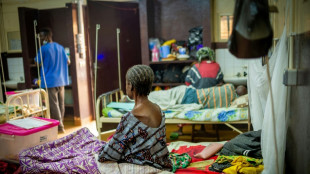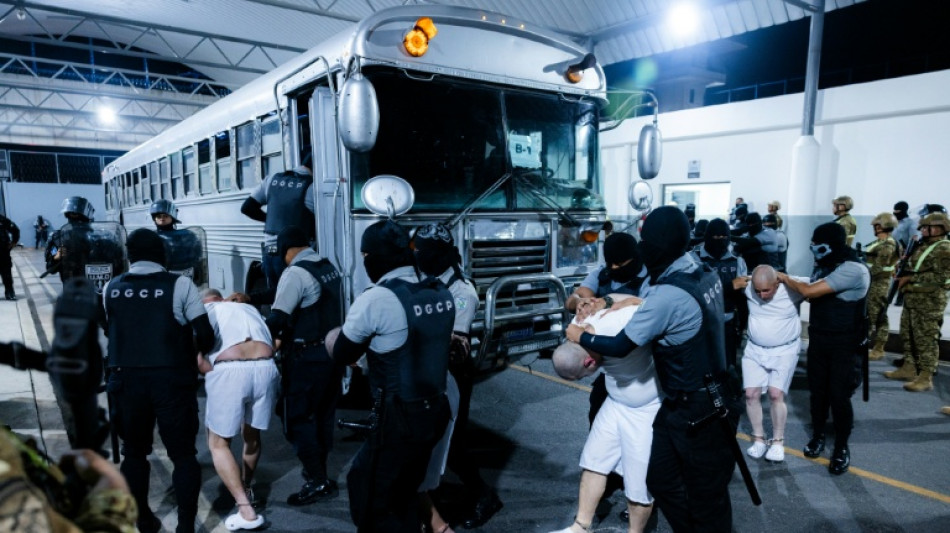
David vs Goliath: Inside the legal battle to help Trump's deportees in El Salvador

A small group of overstretched and outmatched lawyers is fighting for the rights of men deported by the Trump administration and held in a notorious Salvadoran prison -- a David vs. Goliath battle that may end up in international courts.
In a half-empty old schoolhouse outside San Salvador, lawyer Rene Valiente is trying to determine the fate of 252 Venezuelan migrants expelled from the United States in March without any kind of court hearing.
He is the investigations coordinator for Cristosal, a human rights NGO that is challenging El Salvador's all-powerful president, Nayib Bukele, and his even more powerful US ally, President Donald Trump.
For months, Valiente and his team have gone from jail to ministry to courthouse, trying to find out more about those being held at the tightly controlled CECOT facility, and to have the men's legal rights recognized.
With both the Trump and Bukele administrations stonewalling, the lawyers have had little success.
Valiente has no visitation rights, no proof the men are alive, and not even an official list of their names.
"We've asked for information, but have repeatedly been rebuffed," Valiente told AFP. "They are in a kind of legal black hole."
"We've filed 70 applications for habeas corpus. None have been resolved," he said, referring to prisoners' right to challenge their detention.
On a laptop, Valiente shows a database of detainees that he and his colleagues have managed to cobble together despite the official silence.
Some on the list were spotted by distraught family members in Hollywood-style images of chained and shorn deportees being bundled off planes and into jail.
Others are like Jhoanna Sanguino, who saw her 24-year-old nephew's name on a list of detainees leaked to the media.
"It's overwhelming to know nothing," she said. "Is he being fed? Does he get a sip of water? How is his health?
- 'Crime against humanity'? -
Trump has claimed the Venezuelans deported were "criminals" and "barbarians", mostly made up of gangsters, rapists, and murderers.
But Cristosal's database tells a different story.
The group has registered 152 individuals so far, and 90 percent of them have no criminal record.
Cristosal's work appears to have earned the ire of Bukele -- who has consolidated power and packed the courts with allies since being elected in 2019.
Valiente's colleague Ruth Lopez was abruptly detained in May and accused of illicit enrichment, a charge she denies.
Days before her detention, she told AFP she had been working on documenting forced disappearances under Bukele's government.
She is one of tens of thousands of people who have been detained under Bukele's state of emergency, often without court orders, the right to phone calls or even to see a lawyer.
A further crackdown seems likely.
Cristosal director Noah Bullock said that in Bukele's El Salvador "speaking out or asking something that is not aligned with the government entails the risk of being arrested."
The lawyers are determined to help the Venezuelans, but expect little from a country where the president has near-absolute control.
"We want to document these grave human rights violations, to leave a trace. For the moment we are exhausting all domestic legal channels" said Valiente.
Ultimately, they may look to bodies like the United Nations Human Rights Council, the Inter-American Court of Human Rights, and the International Criminal Court, whose treaty, the Rome Statute, was ratified by El Salvador in 2016.
"The Salvadoran government is obligated to report on the condition of the prisoners," said Venezuelan former diplomat Walter Marquez, whose Amparo Foundation represents dozens of the detainees.
"Failing to do so is a crime against humanity, according to the Rome Statute, and could lead to international prosecution."
Salvador Rios, a Salvadoran lawyer hired by the government in Caracas to represent 30 deportees, similarly believes that "sooner or later" Bukele will face justice.
Y.Martinez--PS

 London
London

 Manchester
Manchester
 Glasgow
Glasgow
 Dublin
Dublin
 Belfast
Belfast
 Washington
Washington
 Denver
Denver
 Atlanta
Atlanta
 Dallas
Dallas
 Houston Texas
Houston Texas
 New Orleans
New Orleans
 El Paso
El Paso
 Phoenix
Phoenix
 Los Angeles
Los Angeles
